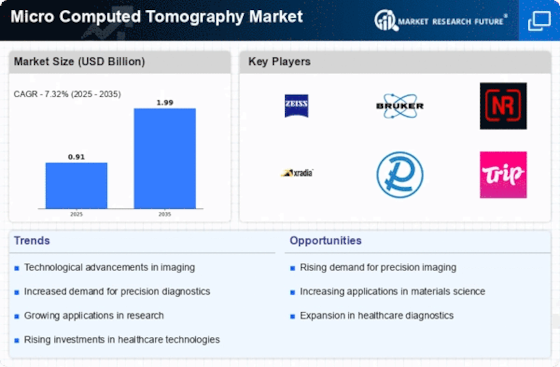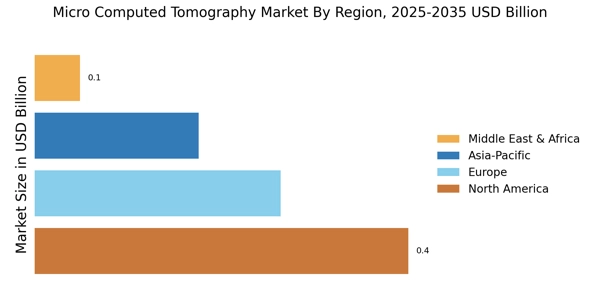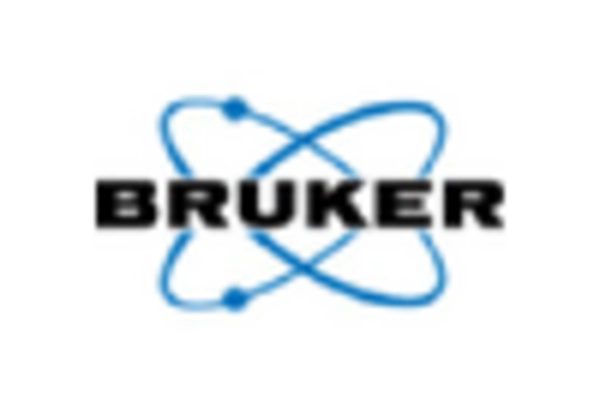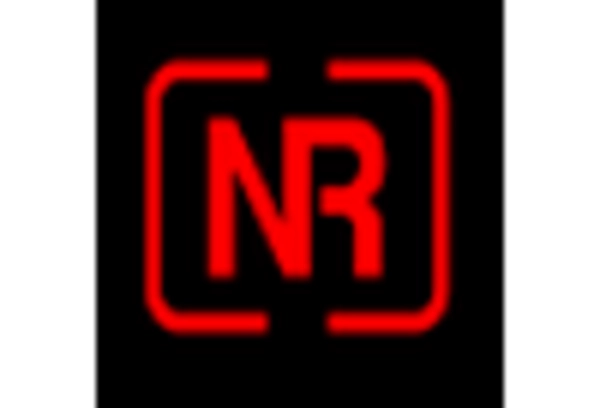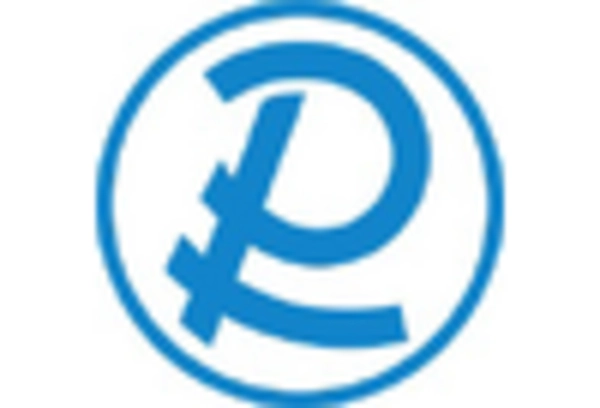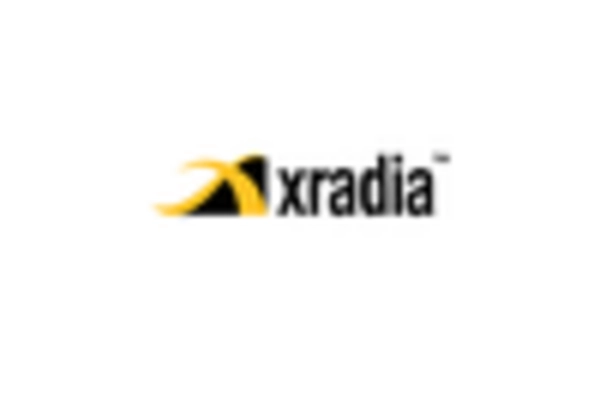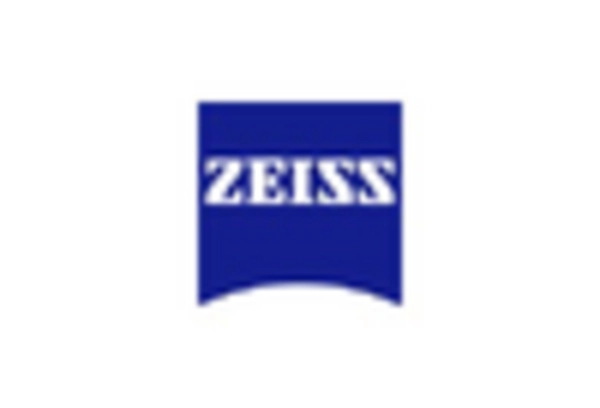Focus on Non-Destructive Testing
The Micro Computed Tomography Market is benefiting from a heightened focus on non-destructive testing (NDT) methodologies. Industries such as aerospace, automotive, and manufacturing are increasingly adopting micro computed tomography for quality assurance and failure analysis. This technology allows for the inspection of internal structures without damaging the components, thereby saving costs and time. The market for NDT is expected to grow, with micro computed tomography playing a pivotal role in ensuring product integrity and safety. As industries prioritize quality control, the demand for advanced imaging solutions is likely to rise, further propelling the micro computed tomography market.
Increased Applications in Healthcare
The Micro Computed Tomography Market is witnessing a notable expansion in healthcare applications. The technology is being utilized for detailed imaging of complex anatomical structures, aiding in diagnostics and treatment planning. For instance, its application in oncology for tumor detection and characterization is becoming increasingly prevalent. Furthermore, the market is projected to reach a valuation of approximately USD 500 million by 2026, driven by the rising demand for precise imaging modalities in clinical settings. This trend underscores the importance of micro computed tomography in enhancing patient outcomes and facilitating advanced research in medical science.
Rising Demand for 3D Imaging Solutions
The Micro Computed Tomography Market is experiencing a rising demand for 3D imaging solutions across various sectors. The ability to generate three-dimensional representations of objects is proving invaluable in research and development, particularly in materials science and biological studies. This demand is driven by the need for more detailed and accurate visualizations that traditional imaging methods cannot provide. As industries seek to innovate and improve their processes, the adoption of 3D imaging technologies is expected to increase. Market analysts predict that this trend will contribute significantly to the overall growth of the micro computed tomography market in the upcoming years.
Growing Investment in Research and Development
The Micro Computed Tomography Market is witnessing a surge in investment directed towards research and development initiatives. Academic institutions and private enterprises are allocating substantial resources to explore new applications and improve existing technologies. This investment is crucial for advancing the capabilities of micro computed tomography, enabling the development of more sophisticated imaging systems. As research progresses, it is anticipated that novel applications will emerge, further expanding the market. The commitment to R&D is likely to foster innovation, ensuring that the micro computed tomography market remains competitive and responsive to evolving industry needs.
Technological Advancements in Imaging Techniques
The Micro Computed Tomography Market is experiencing a surge in technological advancements that enhance imaging techniques. Innovations such as high-resolution detectors and advanced algorithms are improving image quality and reducing scan times. These developments are crucial for applications in various fields, including materials science and biomedical research. The integration of artificial intelligence and machine learning into imaging processes is also gaining traction, allowing for more accurate data analysis and interpretation. As a result, the market is projected to grow significantly, with estimates suggesting a compound annual growth rate of over 10% in the coming years. This growth is indicative of the increasing reliance on sophisticated imaging technologies across multiple sectors.


